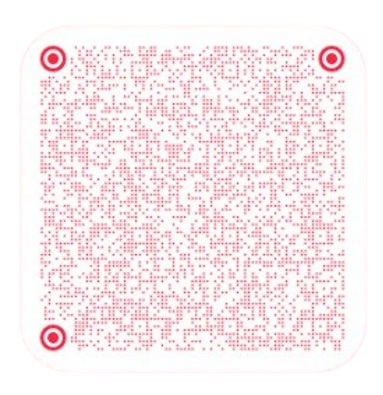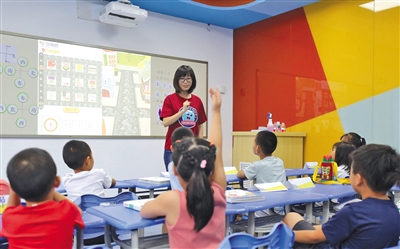





A first-grade math class at the Yuanshi Campus of Xueersi in Beijing. The picture is provided by the interviewee.
Just after the end of the 2019 national college entrance examination, along with the implementation of the reform of the high school and college entrance examination and the new curriculum standard, the concept of "core literacy in subjects" has increasingly entered the classroom. Parents are gradually shifting their focus from simply pursuing grades to valuing the cultivation of their children's abilities.
Changes are also happening in the classrooms of the K12 education and training institution Xueersi. In early 2019, the founder and CEO of TAL Education Group, Zhang Bangxin, put forward the idea of "redefining Xueersi," hoping that Xueersi would become synonymous with "ability improvement."
However, many people's impression of Xueersi still remains as a "subject tutoring institution." What does the mysterious Xueersi classroom look like? How does "ability cultivation" come into play? On June 27, the reporter visited the "front" and "backstage" of Xueersi and explored the real situation of its classrooms, teaching research, and teacher training.
Role-playing and challenging games create a "live" classroom
"Are you coming back next year?" Zhang He (pseudonym) waved goodbye to a friend. On the afternoon of June 27, in the Chinese class at the Yuanshi Campus of Xueersi in Beijing, Zhang He and his classmates learned a poem together, "Farewell to the Post at the Phoenix Tower" by the Chinese poet Wang Wei. The Chinese teacher, Pan Xiaolin, adapted the poem into a little stage play, and 7-year-old Zhang He played the role of Wang Wei in the play.
In addition to Zhang He, more than a dozen other children in the class were also on stage, playing the roles of "the sun," "friends," and "spring grass," which made them burst into laughter. After the teacher's explanation, interaction, and graphical treatment of the text, combined with several performances, the children had already memorized the poem very well.
Similar new teaching methods did not only appear in Chinese classes. In the recently completed math class, the teacher, Meng Xing, led a group of children to learn about spatial orientation. "East, west, south, north" are abstract concepts, how can they be understood by first-grade children?
Meng Xing's method was to place abstract concepts in realistic living scenarios. She used the specially developed animated courseware "Eddy's Adventure" by Xueersi's animation team and concealed the knowledge of direction identification in the "Eddy got lost" challenging game.
"Which way should Eddy go to reach the zoo?" "At night, when the sun is gone, how can we determine the direction?" With this kind of fun guidance and situational involvement, the children started to think and investigate. While learning mathematical knowledge, their abstract thinking abilities gradually developed.
The classrooms at Xueersi are open to parents, and Zhang He's mother, Wang Xi (pseudonym), usually sits on the sideline at the end of the classroom. A year ago, Zhang He didn't like reading at all, and his mother's attempts to get him interested in reading by reading picture books to him didn't work. Wang Xi was deeply worried: how can he develop an interest in reading?
Upon a friend's recommendation, Wang Xi enrolled Zhang He in the courses at Xueersi. After a year of learning, Wang Xi clearly felt that Zhang He was actively looking for and reading books, and recently he even finished reading a simplified version of "Water Margin" on his own. In addition to the improvement in reading ability, the child's interest in learning was sparked, which made Wang Xi particularly surprised.
...